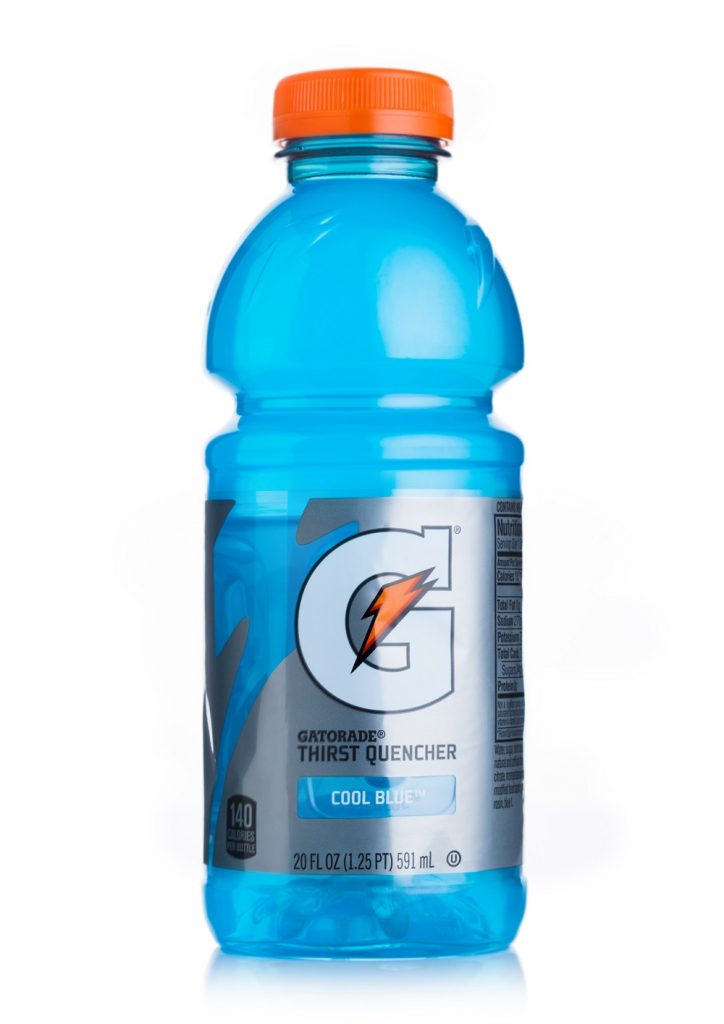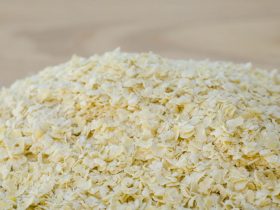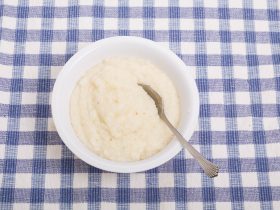Gatorade is an electrolyte-rich drink marketed as a sports aid underneath the PepsiCo multinational drink company1. Available in a wide variety of flavors, Gatorade is commonly found in nearly every store on the globe. Because of this popularity, it is not unusual to question how long Gatorade’s particular shelf-life is.
Gatorade when left unopened will last up to nine months after the printed best by date on the bottle. Once opened, however, both home-made Gatorade and commercial Gatorade will only last up to two days on the counter.
How Long Will Gatorade Last on the Counter after Opening?
Gatorade, while primarily marketed as a sports drink, is rather high in sugar, and as such provides an excellent source of food to microbes and fungi.
Though Gatorade is sterilized and sealed in the factory during production and packaging, once opened, the liquid will be exposed anew to microorganisms that will quickly develop into colonies if left unchecked.

Because of this, should you have left the now-open bottle out on the counter for over twenty-four hours, it is best to discard it.
In the event that your Gatorade is home-made, it is possible for it to last longer than a day open on the counter, though this is variable and caution should be taken so as to reduce any harm from consuming it.
How Long Can Gatorade Last in the Fridge after Opening?
The more advisable route as opposed to simply leaving the Gatorade out on your counter, choosing to refrigerate your Gatorade not only creates a more enjoyable drinking experience but more than doubles its possible shelf-life.
If refrigerated immediately after opening, Gatorade can last as long as five days so long as the ideal conditions are met and an air-tight seal has been placed in order to insulate it from the open air.
How Long Will Gatorade Last in the Fridge Unopened?
Because of the processes Gatorade undergoes while it is being produced and packaged within the factory facility, it will last up to three years left out in the pantry.
As there are very few cultures of bacteria or fungus present within the bottle so long as it remains sealed, choosing to refrigerate it will have very little effect when extending Gatorade’s shelf life is concerned.
The act of freezing or even simply lowering the temperature to a standard 40°F is usually sufficient to extend the shelf-life of most foodstuffs, especially in organic produce wherein enzymatic action that breaks down the food will slow due to the cold temperatures.
As Gatorade is a processed and partially artificial drink, it has no internal enzymes that will compromise its quality, and no microorganisms present so long as it remains sealed2. Therefore, Gatorade left unopened will last about as long in the fridge as it would outside of the fridge; up to three years.
Does Refrigerating Gatorade Affect its Flavor?
This depends entirely on whether the Gatorade has been opened prior to refrigerating.
If the Gatorade has been exposed to the open air, the effect oxygen has on sugar will cause it to develop a weaker and more stale taste. This is still a factor, even if left in the fridge, so long as the Gatorade is left unsealed.
If refrigerated while unopened however, Gatorade will in fact taste better once consumed.
Can Gatorade be Frozen Unopened?
In a query answered by the PepsiCo company itself, it is not recommended to freeze your Gatorade, as this will “damage the flavor emulsion”3, which is most likely due to the differing freezing temperatures between the various liquids Gatorade incorporates into its mixture.
Apart from differing freezing temperatures causing separation of ingredients, the rapid crystallization of water caused by the process of freezing may rupture the bottle and cause it to explode within your freezer. If choosing to freeze your Gatorade, it is best to transfer it to a freezer-safe container, such as a freezer bag or a glass jar.
Is Home-made Gatorade the same as Commercial Gatorade?
Because Gatorade is simply an electrolyte-rich sports drink, it is entirely possible to recreate this drink with none of the added preservatives or other chemicals right in your kitchen.
The drawback to having this arguably simpler version of Gatorade, however, is that it will have a shorter shelf-life compared to commercially produced Gatorade.
This is due to a multitude of factors, such as your kitchen equipment not being sterilized in the same way factory equipment is, as well as the aforementioned lack of preservative chemicals added to the mixture.
Because of this, it is best to calculate the total shelf-life of home-made Gatorade as several days shorter than commercially available Gatorade. Home-made Gatorade will only last up to four days in the refrigerator, for example.
Signs of Spoilage in Gatorade
If wishing to ascertain whether commercially produced Gatorade is still viable to consume, it is best to refer to the best-before date printed on the cap. While this is likely an inaccurate estimation of its actual shelf-life, it is best to use this date as a general guideline when choosing whether to drink your Gatorade or not.
The best-before date does not indicate when the drink is no longer consumable but instead when it is at its best quality. After this date, it is likely that the drink will begin to suffer deterioration in the quality of its taste and appearance.
Apart from the best-before date, another way to tell whether Gatorade is safe to drink is the formation of fungi across the surface of the drink. This may appear to be an amorphous mass, furry balls, or even long tendrils of yeast extending into the bottle. Should you notice this, discard the bottle immediately.
Finally, another way to tell whether your Gatorade has expired is the scent, though this will require you to open the bottle. If an alcoholic or otherwise putrid smell emanates from the liquid, this indicates that bacteria have begun to colonize the Gatorade and that it should be thrown away.
Note that if sediments begin to form along the bottom of the bottle, this is likely sugar separating from the Gatorade, and is not usually a sign of spoilage. Sedimentation may occur if the bottle has been exposed to direct sunlight or has been left unshaken for a long period of time.
In order to remove the sediment, simply shake the bottle until the sugar and other material has dissolved.
References
1. Unknown Author (2010) “Gatorade Fact Sheet” (PDF). PepsiCo, Inc.
2. Unknown Author “ENVIRONMENT, HEALTH, AND SAFETY” pepsico.com PepsiCo, Inc.
3. Unknown Author “Can I freeze Gatorade?” contact.pepsico.com PepsiCo, Inc. https://contact.pepsico.com/gatorade/article/can-i-freeze-gatorade
Featured Image Credit ©celsopupo/123RF.COM





Hi, I'm Dom
Dom Eats was started to help other people fall in love with food. While cooking can feel intimidating, it doesn't have to be.